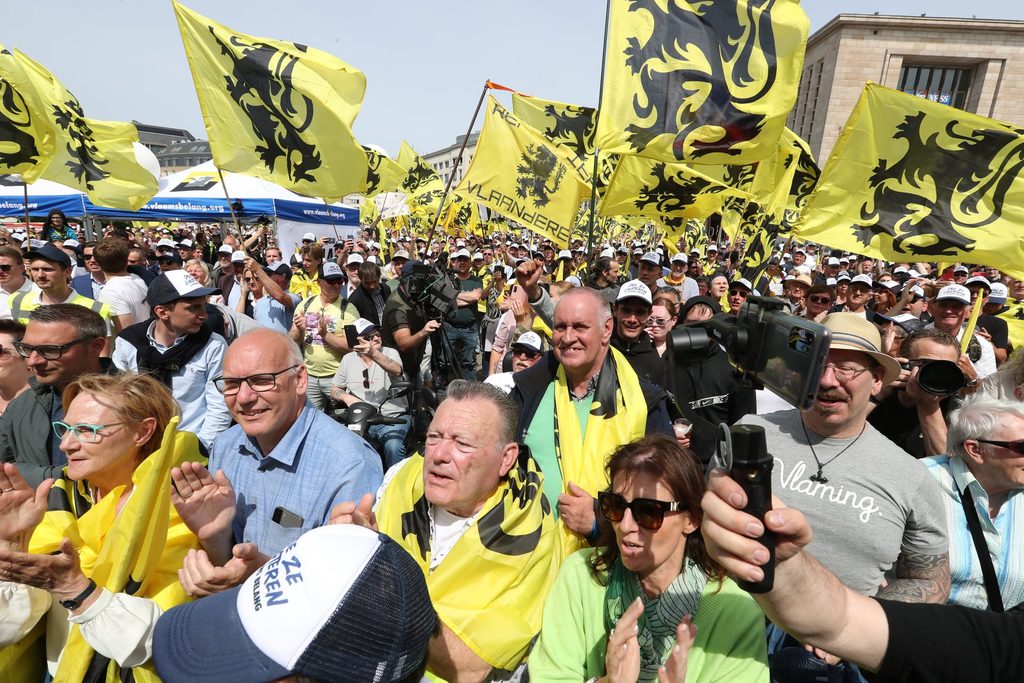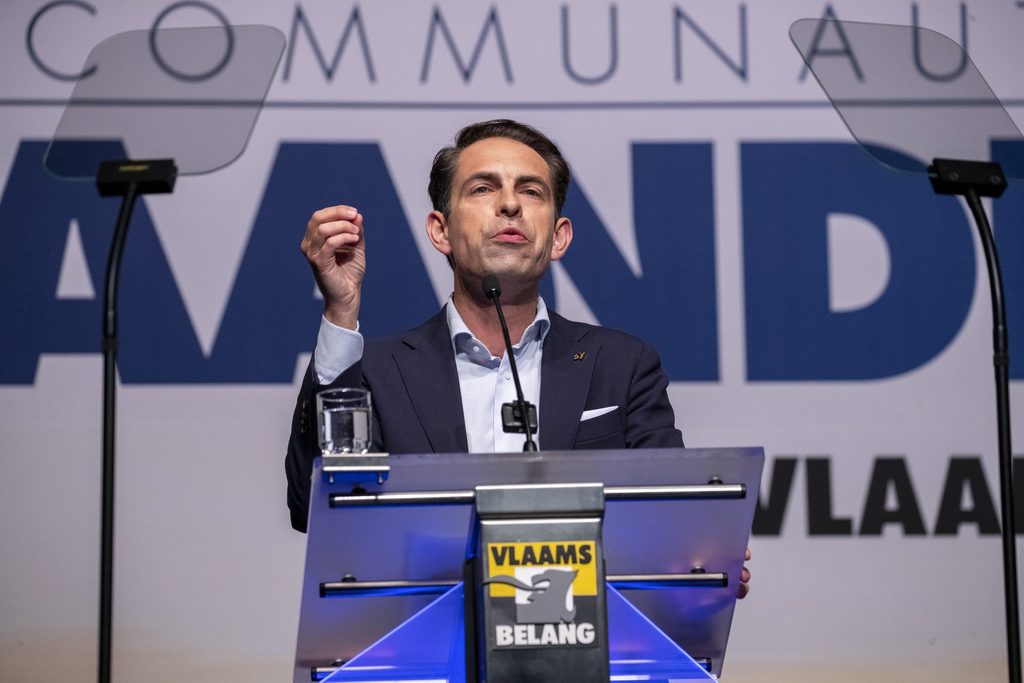Flying high in the polls, the far-right Flemish separatists Vlaams Belang held a party congress in Lier (Antwerp Province) on Sunday, in which they laid out their vision for achieving Flemish independence.
Specifically, the push for Flemish independence will begin in the aftermath of the 2024 Belgian elections, scheduled for 9 June.
Despite having dropped by 2% in the latest poll, Vlaams Belang is still the most popular party in Flanders with 23% of the regional vote – 1% more than the conservative Flemish separatists N-VA, from which is Flemish Minister-President Jan Jambon.
At the national level, Vlaams Belang is currently on track to be the second-biggest party in Belgium with 22 seats, trailing behind the Socialist Party (PS) with 36. PS is the biggest party in Wallonia and the second-biggest in Brussels.
“There is the possibility that the formation of a Federal Government will become impossible," cautioned Gerolf Annemans (an MEP as well as Vlaams Belang representative) on Sunday. His comments made reference to the Belgian cordon sanitaire around the far-right – where the political mainstream refuses to engage with far-right parties such as Vlaams Belang.

Flemish flags pictured during a Vlaams Belang rally in Brussels. Monday 29 May 2023. Credit: Belga / Nicolas Maeterlinck
Yet the dominance of Flemish independentism is a problem for Belgium. Many members of the far-right party believe the support of N-VA is crucial to achieving their plans.
While both Vlaams Belang and N-VA advocate for Flemish autonomy, N-VA leader and Mayor of Antwerp Bart De Wever would prefer to de-federalise Belgium, effectively making the regions autonomous independent states which are unified by a confederalised system. This would remove all kinds of joint governance.
Independence in 2024?
By contrast, Vlaams Belang has made clear its ambition to put a declaration of sovereignty to the Flemish Parliament for a vote. If successful, their proposed separation would be negotiated with Wallonia.
"Ideally, a divorce treaty will follow after this period of negotiations, as we saw with the Czech-Slovak divorce" in 1992, Annemans explained.
For Vlaams Belang, the resulting uncertainty about what status Brussels would have after the break-up of Belgium is less of a headache than others say: Brussels would become part of Flanders.
"We are offering the people of Brussels a bilingual city in which the rights of French-speakers will be fully respected," claimed Vlaams Belang leader Tom Van Grieken.
Last year, Van Grieken stated that if all goes to plan for Vlaams Belang, Flemish independence would be effective from 2029.

